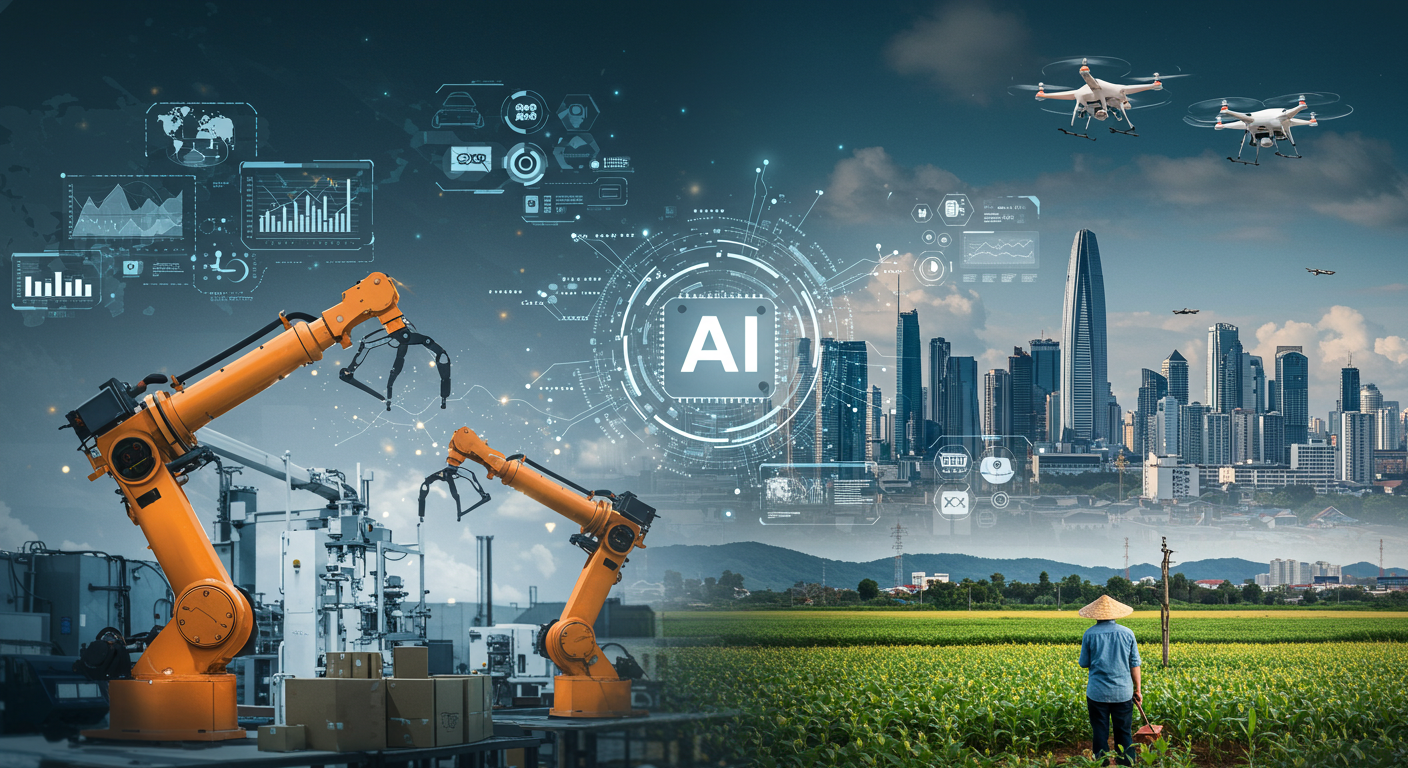In today’s rapidly evolving technological landscape, Artificial Intelligence (AI) has emerged as a transformative force, revolutionizing the way industries operate across the globe. From automating routine tasks to driving groundbreaking innovations, AI’s impact is both profound and far-reaching. Companies embracing AI technologies are not only boosting efficiency but also unlocking new opportunities for growth and competitive advantage. This article explores how AI is reshaping various sectors, highlighting the key applications and the future potential of intelligent systems.
Automation: Streamlining Operations and Enhancing Productivity
One of the most visible impacts of AI in industries is its ability to automate repetitive and time-consuming tasks. Manufacturing plants use AI-powered robots and intelligent systems to perform assembly line work with precision and speed, reducing human error and operational costs. In the logistics sector, AI algorithms optimize supply chain management by predicting demand fluctuations and streamlining inventory control. Even in office environments, AI-driven tools automate data entry, scheduling, and customer service, freeing employees to focus on higher-value tasks.
Automation powered by AI not only improves efficiency but also enhances scalability. Businesses can quickly adjust to market demands without compromising quality, which is crucial in today’s fast-paced world. Additionally, AI’s ability to learn and adapt through machine learning enables continuous improvement of automated processes, ensuring long-term benefits.
Innovation: Driving New Products and Services
Beyond automation, AI acts as a catalyst for innovation, enabling industries to develop products and services that were once unimaginable. In healthcare, AI analyzes vast datasets to assist in early diagnosis, personalized treatment plans, and drug discovery. Financial services leverage AI to detect fraudulent activities, assess credit risks, and provide tailored investment advice through robo-advisors.
The creative industries are also tapping into AI’s potential. From generating art and music to crafting personalized marketing campaigns, AI tools enhance creativity and open new avenues for expression. Autonomous vehicles and smart cities, powered by AI, are reshaping urban living and transportation, offering safer and more sustainable options.
Industry-Specific Transformations
Manufacturing and Industrial Automation
AI-driven predictive maintenance helps manufacturers anticipate equipment failures before they happen, reducing downtime and saving costs. Computer vision systems monitor product quality in real-time, ensuring standards are consistently met. The integration of AI with the Internet of Things (IoT) creates smart factories capable of self-optimization and efficient resource use.
Retail and Customer Experience
Retailers use AI to analyze consumer behavior and preferences, enabling personalized recommendations and dynamic pricing. Chatbots and virtual assistants provide 24/7 customer support, enhancing satisfaction and engagement. Inventory management is optimized with AI forecasting, preventing stockouts or overstock situations.
Agriculture and Food Production
AI assists farmers with precision agriculture techniques, using data from drones, sensors, and satellites to optimize irrigation, fertilization, and pest control. This leads to higher yields, reduced waste, and sustainable farming practices. AI also helps in monitoring livestock health and automating harvesting processes.
The Future of AI in Industries
The integration of AI across industries is just beginning. As technologies evolve, AI systems will become more sophisticated, capable of handling complex decision-making and collaborating seamlessly with humans. Ethical considerations and regulatory frameworks will play a crucial role in guiding AI’s development and deployment to ensure fairness, transparency, and accountability.
Companies investing in AI research and infrastructure will likely dominate their sectors, driving economic growth and creating new job opportunities centered around AI management, development, and oversight. Continuous learning and adaptability will be essential for the workforce to thrive in this AI-enhanced era.
Conclusion
Artificial Intelligence is not merely a technological trend but a fundamental shift in how industries operate and innovate. From automating routine processes to enabling groundbreaking advancements, AI is reshaping the global industrial landscape. Businesses that embrace AI strategically will benefit from increased efficiency, enhanced customer experiences, and the ability to innovate faster than ever before. As AI continues to evolve, its influence will deepen, marking a new chapter in industrial development and human progress.

